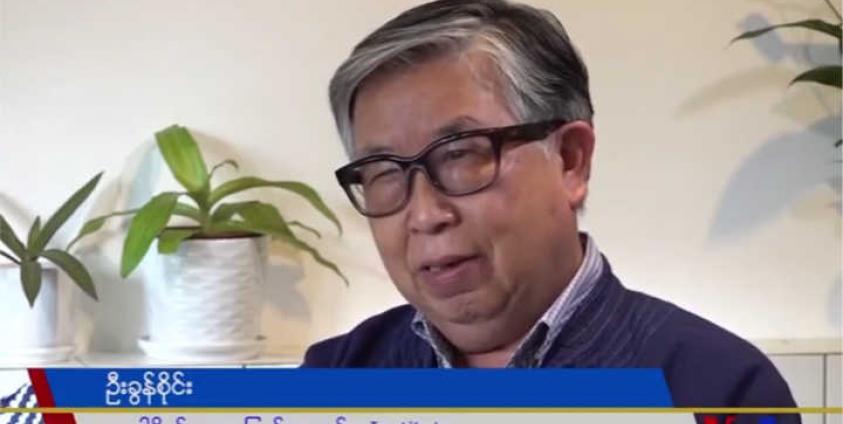Lately, news seeping out from government sources indicate that the much talked about bilateral ceasefire negotiation between the Northern Alliance – Burma (NA-B) and the National League for Democracy-led civilian-military regime may be shelved, due to Arakan Army (AA) hostage-taking of the government security personnel.
The NA-B members are the Kachin Independence Organization (KIO), Ta’ang National Liberation Army (TNLA), Arakan Army (AA), and Myanmar National Democratic Alliance Army (MNDAA).
The bilateral ceasefire talks have been held for four times, in Muse, Kunming and twice in Kengtung, without any breakthrough or concrete agreement. And as it now seems, the further meeting will be quite problematic, if not at all impossible.
This kind of prevailing atmosphere could be because the culture of angst has overtaken all the stakeholders, fellow peace-negotiators or contenders in Burma or Myanmar political arena, said Khuensai Jaiyane, director of the Pyidaungsu Institute, patron of the Shan Herald Agency for News and advisor of the Restoration Council of Shan State, an Ethnic Armed Organization (EAO) that inked the Nationwide Ceasefire Agreement in October 2015.
Khuensai was interviewed by the Voice of America on October 28 regarding the situation of the peace process that has remained stagnated after one year. The 21st Century Panglong Conference hasn’t been able to convene, the third and last of which was held in July last year.
Culture of angst
Let us look a bit into what is the culture of angst in Burma context.
According to Khuensai, every party has developed an attitude or the culture of angst linked to distrustfulness against each other, whether be it the government, military or Tatmadaw, or the EAOs.
Answering to the question posed to him why the peace process has gone nowhere, he elaborated: “We ought to base our peace aspirations on all desired common goal in the discussion. But when we actually negotiate, we were discussing based on our angst. With the existence of the angst nobody trust each other, whether they are (NCA) ceasefire signatories or non-signatories, which is a problem.”
“This atmosphere of angst occurred not only among the EAOs but also on the side of government and the Tatmadaw. This occurrence on both sides needs to be removed,” emphasized Khuensai.
He went on to explain giving the example of AA and Tatmadaw disagreement over the former’s right to be stationed in Arakan or Rakhine State.
“For example, in Kengtung (meeting) there were two problems. One is the troops relocation (demarcation and placement). AA was told to leave and go back to Kachin Independence Organization (KIO) territory. Many said this going back to KIO territory is impractical. If this is the case, argument began to surface that Bamar Tatmadaw should also go back to Bangkok as it was established there. From the beginning AA is formed to be stationed in Arakan,” he explained.
AA is afraid that it has to go back and cannot go back and Tatmadaw is pushing it to do so. This problem is unsolvable. In the same vein, the issue of whether China and United Wa State Army should be involved in the peace process are all concerned with the attitude of angst and lack of trust.
“The main thing is if we really trust each other even without anybody participating it is doable. But when we are distrustful of each other, the problems we now have happened,” remarked Khuensai.
Analysis
As of now, overcoming the attitude of angst and distrustfulness are hurdles hindering the peace process to move forward.
Apart from having to overcome the said culture of angst that would do away with the distrustful nature, all-inclusiveness is also the key, together with a balanced political playing field.
Just to overcome the hurdle of all-inclusiveness the undertaking to seal bilateral ceasefire deal with the NA-B is needed and a must. But latest news coming in suggested that the government might be shelving the bilateral ceasefire talks because of AA hostage-taking which involved government security forces and still are not released.
The negotiation parties are also said to be bogged down on next meeting date and the choice of venue meeting, which was supposed to be held in October. Reportedly, the government preferred Kengtung and the NA-B Muse, Mongla and Loi Je.
And only to create a more conducive atmosphere the government and as well the AA side will need to make concession, at least, by releasing the government hostages and arrested AA leadership relatives, detained and charged by the government. And including of course, a multitude of civilian arrested in Arakan State on charges of association with illegal organizations and others.
In sum, in order to curb the culture of angst and foster trust, trust-stimulation actions creating conducive atmosphere like showing largesse by releasing hostages and freeing political prisoners with trumped up charges have to be enacted. And only then, the bilateral ceasefire talks will make a difference, not before goodwill concessions are on the table from both sides of the conflict spectrum.







